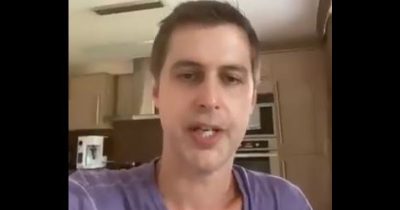Doctor Banned for Questioning Efficacy of Masks Wins High Court Case
Censorship was “clearly wrong and cannot stand.”

All Global Research articles can be read in 51 languages by activating the “Translate Website” drop down menu on the top banner of our home page (Desktop version).
To receive Global Research’s Daily Newsletter (selected articles), click here.
Visit and follow us on Instagram at @crg_globalresearch.
***
A doctor in the UK who was banned from using social media by the General Medical Council for claiming “masks do nothing” has won his case in the High Court.
Dr. Samuel White was slapped with and 18 month ban by the GMC after he posted a video to Instagram and Twitter in June questioning the efficacy of face coverings.
In the video, White said why he could no longer tolerate working in his previous roles because of the “lies” around the NHS and the government’s response to the pandemic, which were “so vast” he could no longer “stomach” them.
White also committed the ultimate sin of remarking, “masks do nothing” to stop the spread of COVID, despite this being the consensus medical opinion at the start of the pandemic before it mysteriously switched almost overnight.
Dr. Samuel White – conspiracy theory or…. pic.twitter.com/twTncANbZZ
— Deleuze (@Kukicat7) September 24, 2021
The doctor also expressed concerns about the safety of vaccines and the reliability of COVID tests.
White took his case against the GMC to the High Court on the basis of his freedom of expression “to engage in medical, scientific and political debate and discussion,” White’s barrister, Francis Hoar, told a hearing at the Royal Courts of Justice.
Hoar added that White’s opinions were “supported by large bodies of scientific and medical opinion” and had been “statements of fact and opinions about pharmaceutical and non-pharmaceutical interventions in response to the pandemic.”
Why I resigned as a GP Partner
Dr Samuel White pic.twitter.com/544l4C2nga
— ЯΞD PILL LΞD 🔎 (@Red_Pill_Led) June 8, 2021
GMC’s Alexis Hearnden claimed that White’s views were not only misinformation, but posed a “risk” to the public because they didn’t align with official pronouncements.
However, the court ruled in favor of White, asserting that the tribunal which banned him from speaking had violated the 1998 Human Rights Act.
The ruling concluded that the tribunal’s decision was “an error of law and a clear misdirection,” meaning the decision was “clearly wrong and cannot stand.”
*
Note to readers: Please click the share buttons above or below. Follow us on Instagram, @crg_globalresearch. Forward this article to your email lists. Crosspost on your blog site, internet forums. etc.
Featured image is a screenshot from the video

